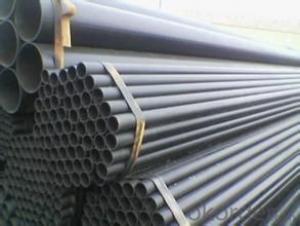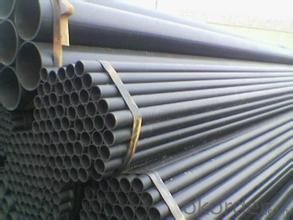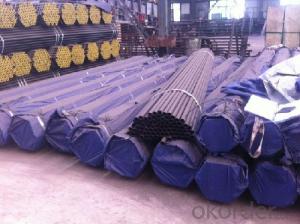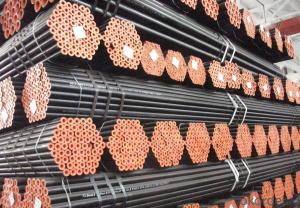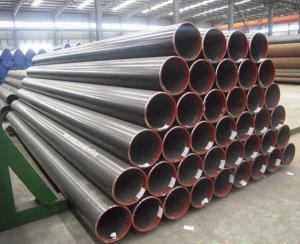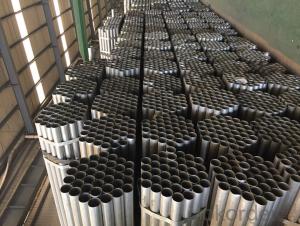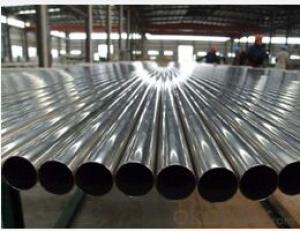Many varieties of practical welding steel pipe
- Loading Port:
- Tianjin
- Payment Terms:
- TT OR LC
- Min Order Qty:
- 20 m.t.
- Supply Capability:
- 5000 m.t./month
OKorder Service Pledge
OKorder Financial Service
You Might Also Like
LSAW Steel Pipe
1 Size: 219-3200 mm*5-25.4mm
2 Material Q235/Q345/20#/X42-X65/J55 etc
Standard:
EN-10208-1/2, GB9711.1/2 etc.
Steel Grade:
B, X42 up to X70; L245, L290 up to L48
Usage:
Used for Steel Structure
Size:
LSAW from 219.1mm to 3200mm, thickness from 5mm to 25.4mm
Ends: Beveled ends with protector
Surface:
Bare / Varnish coating / FBE, 3PE coating DIN30670 / or by client option
Packing:
Casing, bundled shipping in containers or by break bulk vessel
Process | Longitudinal Submerged- Arc Welded Steel Pipe (DSAW -Double Submerged arc welded) |
Usage | Used for liquid delivery, such as water, gas, and oil; construction and piling |
Standard | API 5L(PSL1,PSL2), ASTM A252,EN10217, EN10219,KS F4602, KS D3583, BS, JIS, IS |
Certificate | ISO 9001:2008, ISO 14001, ISO 18001, API 5L (PSL1, PSL2),EN10217, EN10219 and so on. |
Outside Diameter | 323.9 mm-2134 mm (12"-84") |
Wall Thickness | 6 mm - 80mm |
Length | 6 – 14 m |
Grade | API 5L: GR A, GR B, X42,X46, X56, X60,X65,X70 ASTM A252 GR 1, GR 2, GR 3 EN 10219: S275, S275JR, S355JRH, S355J2H EN 10224, L235,L275,L355 |
Surface | Fusion bond Epoxy coating, Coal Tar Epoxy, 3PE, Varnish Coating, Bitumen Coating, Black Oil coating as per customer’s requirement |
Test | Chemical Component Analysis, Mechanical Properties (Tensile strength, Yield strength, Elongation), Hydrostatic Test, X-ray Test,Size Inspection. |
Mill Test Certificate | Mill Test Certificate:EN 10204/3.1B |
- Q: Can steel pipes be bent or curved?
- Yes, steel pipes can be bent or curved using specialized equipment and techniques such as pipe bending machines or hydraulic bending.
- Q: How are steel pipes resistant to corrosion?
- Steel pipes are resistant to corrosion due to a combination of factors. Firstly, steel pipes are often coated with a protective layer, such as zinc or epoxy, which acts as a barrier between the steel and the surrounding environment. This coating prevents moisture and other corrosive substances from coming into contact with the steel, reducing the chances of corrosion. Additionally, the composition of steel itself plays a role in its corrosion resistance. Steel is primarily made up of iron, with small amounts of other elements added to enhance its strength and durability. These elements, such as chromium and nickel, create a protective oxide layer on the surface of the steel. This oxide layer acts as a natural barrier, preventing the underlying steel from being exposed to moisture and oxygen, which are key contributors to corrosion. Furthermore, steel pipes can be treated through a process called galvanization, where a layer of zinc is applied to the surface. This zinc coating provides an extra layer of protection against corrosion, as zinc is highly resistant to rust and oxidation. The zinc sacrificially corrodes instead of the steel, further extending the lifespan of the pipe. Overall, the combination of protective coatings, the composition of steel, and galvanization processes all contribute to the corrosion resistance of steel pipes. This makes them highly durable and suitable for various applications, including plumbing, construction, and transportation of fluids and gases.
- Q: What's the difference between straight steel pipe and seamless steel pipe?
- Seamless steel pipe and welded pipe are separated because of different production process. Seamless steel tubes include hot rolling, cold rolling, cold drawing, and other rare, such as cold extrusion.
- Q: How are steel pipes protected against underground corrosion?
- Steel pipes are typically protected against underground corrosion through various methods such as coating the pipes with corrosion-resistant materials like epoxy or polyethylene, cathodic protection using sacrificial anodes or impressed current systems, and regular inspection and maintenance to detect and address any signs of corrosion.
- Q: What does "1.5" steel tube mean?
- 1.5 inch [1 1/2 steel pipe, outer diameter 48.3mm, 1.5 inches, refers to the pipe bore is approximately the inner diameter (25.4x1.5 = 38.1mm). [DN40] the specific parameters of the steel pipe are as follows;The average wall thickness is: 3.5mm;The minimum wall thickness is 3.06mm,Nominal diameter is 40mm,External Jing is 48.3mm,
- Q: How are steel pipes used in the manufacturing of automotive exhaust systems?
- Steel pipes are commonly used in the manufacturing of automotive exhaust systems as they possess high strength, durability, and resistance to heat and corrosion. These pipes are used to transport exhaust gases from the engine to the tailpipe, ensuring the safe and efficient operation of the vehicle. They are typically bent and welded together to create a complex network of pipes that helps direct the flow of exhaust gases and reduce noise levels. Overall, steel pipes play a crucial role in the construction of automotive exhaust systems, contributing to their reliability and longevity.
- Q: How are steel pipes used in the manufacturing of marine applications?
- Steel pipes are commonly used in the manufacturing of marine applications due to their durability, corrosion resistance, and high strength. These pipes are utilized for various purposes, such as constructing ship hulls, offshore platforms, and underwater pipelines. They are also employed in the manufacturing of marine equipment, including pumps, valves, and heat exchangers. Furthermore, steel pipes are crucial for transporting fluids, such as oil, gas, and water, in marine environments. Overall, steel pipes play a vital role in ensuring the reliability and efficiency of marine applications.
- Q: Can steel pipes be used for underground sewage systems?
- Yes, steel pipes can be used for underground sewage systems. Steel pipes are durable, resistant to corrosion, and can withstand high pressure, making them suitable for transporting sewage underground. However, proper protective coating and maintenance are essential to prevent any potential corrosion or degradation over time.
- Q: Are steel pipes suitable for potable water applications?
- Yes, steel pipes are suitable for potable water applications. Steel pipes are commonly used for transporting water in various industries and municipal water systems. They are known for their durability, strength, and resistance to corrosion, making them a reliable choice for potable water systems. Steel pipes also have the advantage of being able to withstand high pressure and temperature conditions, making them suitable for both hot and cold water applications. Additionally, steel pipes can be easily welded, ensuring leak-free connections. However, it is important to note that the quality of the steel used and proper maintenance are crucial factors in ensuring the safety and suitability of steel pipes for potable water applications. Regular inspection and maintenance should be done to prevent corrosion and ensure the integrity of the pipes.
- Q: Can steel pipes be used for high-pressure applications?
- Yes, steel pipes can be used for high-pressure applications. Steel is known for its strength and durability, making it suitable for handling high-pressure fluids or gases in industries such as oil and gas, chemical processing, and power generation. The use of steel pipes ensures reliable performance and reduces the risk of leaks or ruptures even under high pressure conditions.
Send your message to us
Many varieties of practical welding steel pipe
- Loading Port:
- Tianjin
- Payment Terms:
- TT OR LC
- Min Order Qty:
- 20 m.t.
- Supply Capability:
- 5000 m.t./month
OKorder Service Pledge
OKorder Financial Service
Similar products
Hot products
Hot Searches
Related keywords
